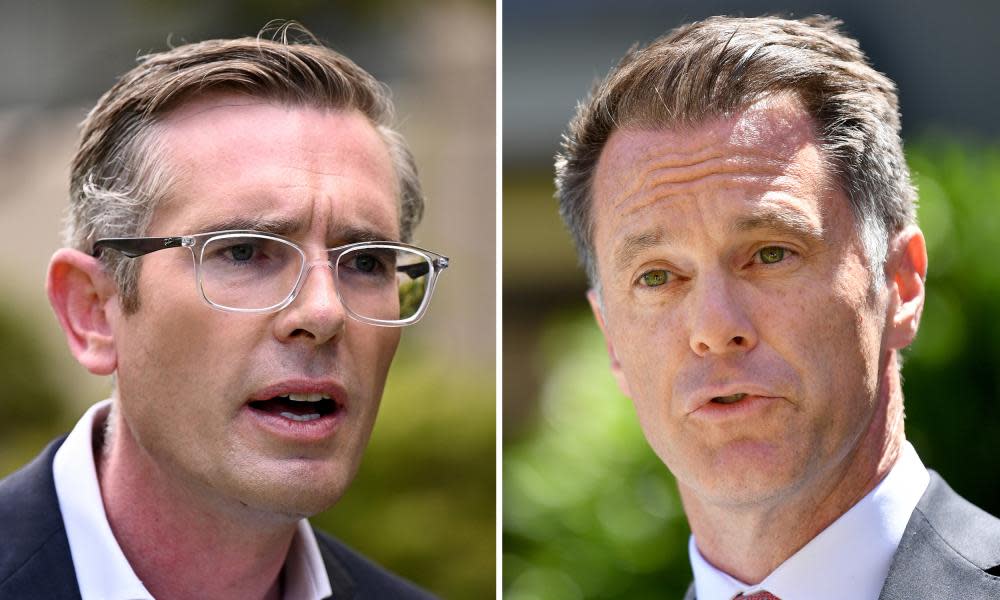NSW election: Perrottet ‘happy’ to explore state voice as Minns wins final debate

Dominic Perrottet said he was “happy” to explore an Indigenous voice to the New South Wales parliament if the state votes for the federal body at this year’s referendum but it fails overall.
Appearing in the final party leaders’ debate on Wednesday ahead of this weekend’s state election, the premier opened the door to the representative body in parliament.
But the suggestion did not sway voters in the room who gave Labor opposition leader Chris Minns a decisive victory on the night.
Related: Final voice referendum wording and constitutional amendment ‘very close’
Following the hour-long debate, almost half of those in attendence were in favour of Minns, about a third wanted to deliver the Coalition a fourth term in government and 20% remained undecided.
When asked what he would do in the case the voice referendum fails nationally, Perrottet insisted he had made it “very clear to my ministers” that they needed to be consulting with Aboriginal peak bodies on all issues but was also “happy to” look at a state body.
“The point of the voice is about having First Nations people having a voice at the table,” he said.
Minns also said he wanted to look at it and supported the start of a treaty process with First Nations people regardless of the federal result.
He reiterated his support for the camapign by his federal colleagues.
Related: Election sign row triggers teal push to make preferential voting compulsory in NSW
“We support the voice, we hope it gets up,” the Labor leader said.
The premier and opposition leader faced 16 questions ranging from childcare and health services to privatisation and the cost of living crunch during the debate moderated by Sky in the marginal seat of Penrith in western Sydney.
Both leaders struggled to answer a question from a young woman about how they were going to address issues in maternity wards across the state that she said were turning away patients due to understaffing.
Both made general comments about their plans to bolster the healthcare workforce but neither could answer specifically how this woman and others like her would be better off in maternity wards.
Perrottet accused Minns of failing to be transparent with the public about the cost of his key policy to uncap public sector wages.
“You need to say what the impact on the budget is,” Perrottet said.
Minns said the point of the policy was to allow nurses and teachers to come to the negotiation table and argue their case for more money, but could not confirm they would be better off.
“I’m proposing… that we have the ability to sit down and negotiate with frontline workers, the people that saved us during the pandemic,” he said.
The Labor leader also insisted removing the wages cap, alongside another key policy of introducing nursing ratios, would improve health outcomes across NSW hospitals that were also the focus of questions from the audience.
Minns stumbled over repeated questions from an undecided voter over the cost of his toll relief strategy that he eventually said was costed at “more than a $100m” by the Parliamentary Budget Office, when the policy will cost $145m over two years.
He was also questioned why he was railing against toll roads and privatisation when previous Labor governments were in part to blame for the problems.
Minns insisted he had spoken out against those decisions at the time when he was a young backbencher and vowed to continue to do so from the top office, should he be elected.

 Yahoo News
Yahoo News 
